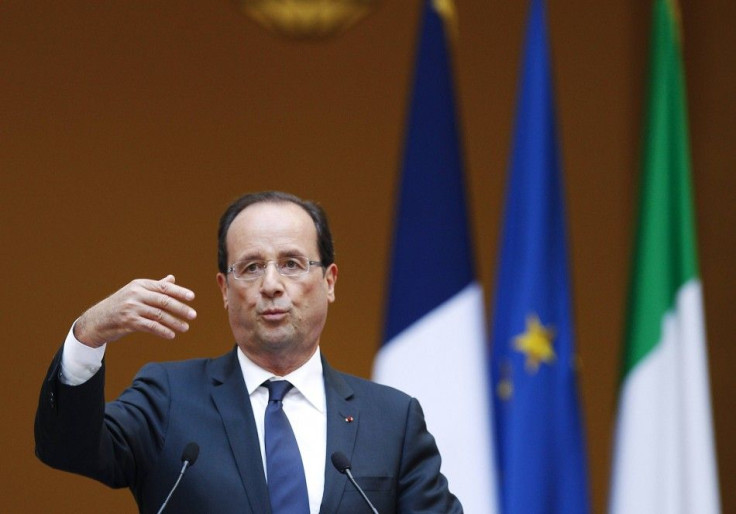France Wants EU Growth Package Worth ?120B This Year

With French President Francois Hollande's Socialist Party appearing likely to cement its hold on the country's government in the second -- and final -- round of elections for the National Assembly on Sunday, the Journal du Dimanche has reported that France wants the European Union to agree on growth-boosting measures worth €120 billion ($151 billion) this year, according to Reuters.
The weekly newspaper also reported that France has accepted Germany's rejection of its call to issue mutualized debt in the euro zone and that it now agreed so-called euro bonds are instruments to be studied over a 10-year time frame.
The €120 billion cost of the growth package would be met by a combination of funds, such as fresh capital from the European Investment Bank (€60 billion), reallocated EU structural funds (€55 billion), and bonds for infrastructure projects (€4.5 billion), the newspaper said.
Hollande submitted his proposal to EU partners a few days ago, in advance of both a Group of 20 summit in Mexico on Monday and Tuesday and the four-way talks with the leaders of Germany, Italy, and Spain in Rome on Friday, Reuters reported in its article on the newspaper's story.
Hollande discussed his ideas with Italian Prime Minister Mario Monti in Rome on Thursday and also circulated them to European Council President Herman Van Rompuy and others two weeks before the crucial EU summit on June 28-29, Reuters said.
The French president also wants the euro zone's permanent bailout fund -- aka the European Stability Mechanism -- to be given a banking license after its anticipated launch next month, according to Reuters. The license would allow the ESM to borrow money from the European Central Bank as a means of bolstering its firepower.
Meanwhile, all 577 seats in France's National Assembly have been at stake in the two rounds of elections beginning June 10 and ending Sunday, with control going to the bloc or party with a majority of 289 seats.
Both the first-round results and public-opinion polls indicate Hollande's Socialist Party allies could win an outright majority of the seats in the lower house of the country's Parliament. The Socialists are already members of the majority coalition in the upper house (i.e., the 331-seat Senate).
Members of the National Assembly chosen by voters in the last election in 2007 included 313 from the right-of-center Union for a Popular Movement, or UMP (led by former President Nicolas Sarkozy), 186 from the left-of-center Socialist Party, and 22 from the New Center party.
Obviously, France -- and the world -- have changed a lot in the intervening five years.
© Copyright IBTimes 2024. All rights reserved.












